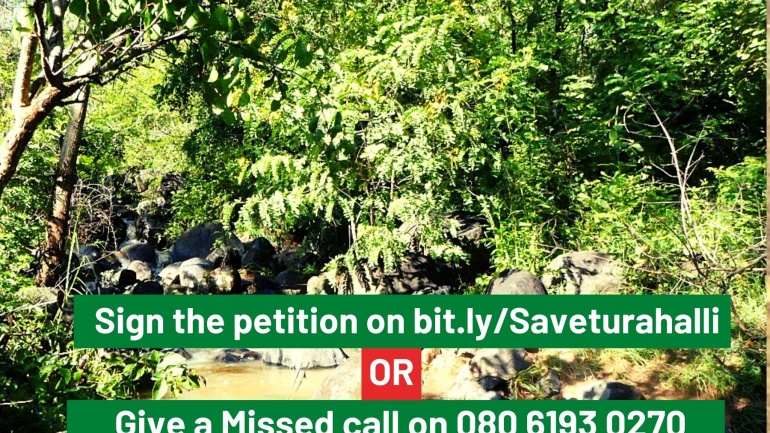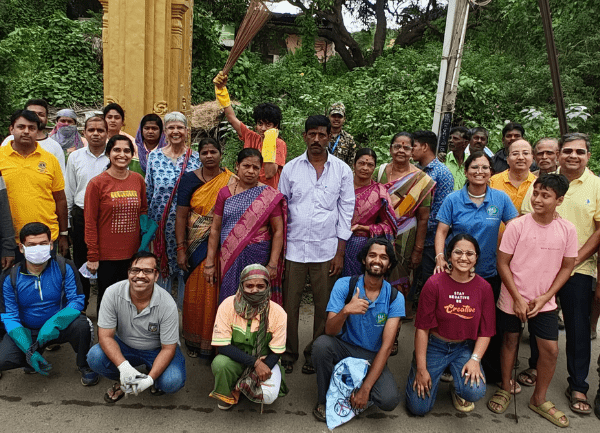On a Wednesday morning, I was having my coffee and reading the newspaper when my dad walked out of his room. His face looked tired and dull. I checked on him only to find that he had a mild fever. We ignored it since he had taken the first jab of Covaxin. Fever and body pains were some of the common side-effects of the vaccine.. We ensured he was isolated for a couple of days just to be sure that he didn’t have Covid. Two days later, when the fever didn’t come down, we decided to get an RT-PCR test to be sure.
Now came the challenging part — the wait of 24 hours for the result. The following 24 hours were spent anxiously waiting for the result. We heard the devastating effects of the second wave, which led to a shortage of oxygen cylinders, lack of beds, and limited availability of Remdesivir…this did not help.
The result came back positive.
We started our routine of online consultations and medications prescribed by the doctor and brought ourselves an oximeter and thermometer to regularly check his vitals.
The doctor recommended a mandatory CT scan which would show the severity of the infection. The scan showed a moderate infection that required hospitalisation. This was worrying.
At 10:30 PM, we managed to reach a hospital and arrange for a bed. And we were in for a surprise. The person at the reception said, “We do not accept cashless insurance for Covid. If you want cashless treatment, then you need to try other hospitals”.
The unavailability of cashless hospitalisation was a blow to us. The much-hoped insurance that I felt would come in handy in these circumstances was of no help. And yes, we could claim a reimbursement, but that process is long and often the full amount is not reimbursed.
I kept my options open and came back home with my dad. I started making calls, and it took me less than 30 minutes to understand that hospitals weren’t accepting cashless treatments for Covid care across Bangalore.
The next day we got him admitted to the hospital by making cash payments.
Hospitals and insurance are usually tricky, but this time the case was different. The room rent cost us Rs. 18000, 6 times the price of the room on a regular day. We knew the claims would be under settled as the insurance company had a cap of only 4500 per day for room rent.
Now let me break all this down.
As per the Insurance Regulatory and Development Authority of India (IRDAI), hospitalisation due to covid is duly covered and is eligible for cashless treatment. But why aren’t hospitals accepting this?
As per the service level agreement (SLA), consumables are not paid by the insurance company. Consumables are the PPE kits, gloves, masks and sanitation material used by the staff. These consumables are essential while treating covid patients.
When billed separately, the insurance company does not pay these consumables, leading to conflict with the hospital and insurance company.
The hospital combines the cost of consumables along with the room rent and nursing charges. When such a bill is raised, the per-day room rent charges go high, usually more than what is agreed in the SLA. This again leads to a reduction in claim amount being settled for cashless treatment. The tug of war continues between the hospital and the insurance company.
So what is the convenient option? — Hospitals refusing to accept the cashless treatment for Covid cases. The rise in covid cases and the shortage of beds would mean the general public would have no option but to get a bed by paying cash even though they were eligible for cashless treatment. The more you try to reason with the authorities or the hospital, the chances are you will lose your bed!. The emergency drives people to get the treatment first and then worry about insurance reimbursement later.
The insurance company has promised reimbursement for Covid hospitalisation. But the claims are under-settled. Like I said,the consumables won’t be reimbursed as it is not agreed upon in the SLA. The claim settlement is often at 50-55% in most cases.
In the end, the insured party who pays the premium is often at a loss.
Let’s now see what happens when we don’t get a bed.
Due to the lack of beds, most people are turned away by the hospitals. This forces the patients to get treatment at home with whatever private help they can get. And this comes at mostly inflated prices.
Most existing mediclaim/indemnity type health insurance policies do not cover standalone domiciliary hospitalisation, i.e., medical treatment at home. Although most policies cover pre and post hospitalisation care, mandatory hospitalisation would be required to claim a reimbursement.
The condition of 24 hours of hospitalisation presumes that hospital beds would be available on-demand, which is not the case in the current pandemic.
The loss again is at the insured person’s end, who would have to part money from their savings.
IRDAI has come up with Corona Kavach, but that comes with its pros and cons. It’s an additional policy that you would have to purchase apart from the existing one to cater to covid illness.
The Corona Kavach Policy can be bought for an individual or as a family floater plan, but it can only be availed by persons between the ages of 18 and 65. However, the policy will not cover any other treatment that is unrelated to the present pandemic. The plus point, though, is that the policy covers home treatment without the mandatory hospitalisation criteria. The corona Kavach also covers the cost of sanitisation materials like PPE kits, gloves, masks…
Currently, health care in our country is in crisis.When people struggle to get medication for their friends and family while keeping themselves safe, do they have time and patience to go through the different policies and terms and conditions?
Insurance companies must develop a plan to address the claims due to the ongoing pandemic that’s ravaging our country. The focus should be to ease the burden on the insured person during these challenging times rather than make them run from pillar to post with insurance paperwork. Here is what they can do:
- Ensure cashless treatments for covid care by the hospitals.
- Take action against hospitals not providing cashless facilities.
- Pay for consumables for covid treatment with the existing policies (masks, Gloves, sanitiser, PPE kits, so on )
- Come up with a plan to honour the cashless claims and draft a new SLA with the hospitals for existing medical policies.
- Reimburse covid hospitalisation entirely.
What has your experience been like? Tell us in the comments. And sign the petition to demand a comphrensive plan to address the insurance crisis.


